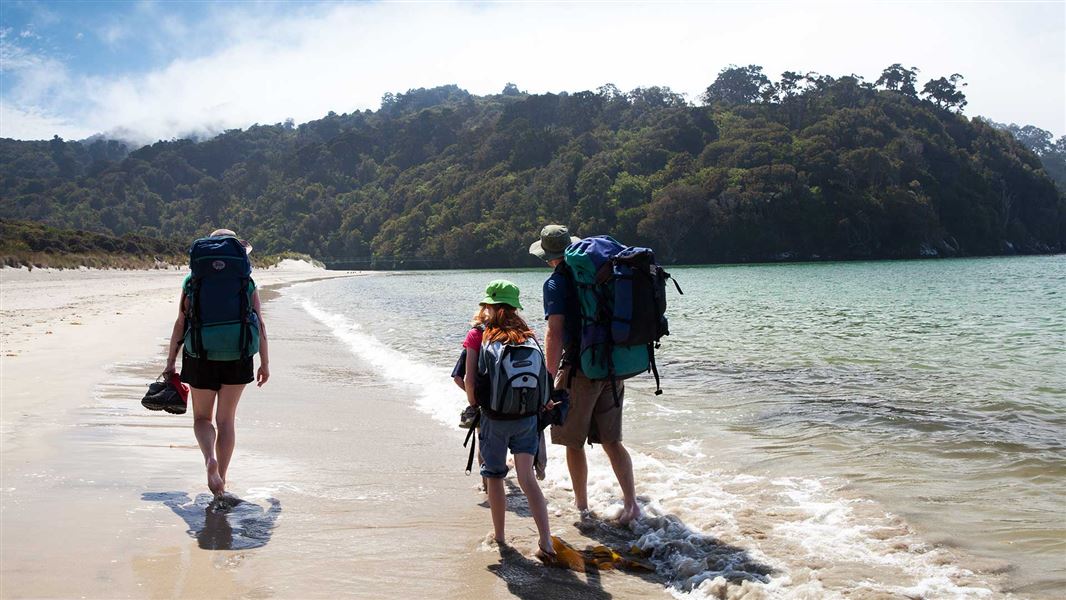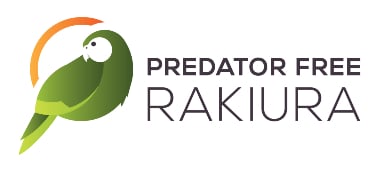
Introduction
We are working to eradicate introduced predators on Rakiura/Stewart Island so native species and people can thrive together.
A vision to restore ecological balance
Rakiura is no longer safe for many native species that belong there, and the health of the forest is continuing to decline. Introduced predators and pests are dominating the food chain by eating native animals and plants and competing for food.
Predator Free Rakiura (PFR) aims to permanently remove rats, possums, feral cats and hedgehogs from the island. This will enable native species to return and recover and create opportunities for current and future generations to contribute to and benefit from the restoration of this unique environment.
It is the largest, most complex predator eradication project ever attempted on an inhabited island. It will provide critical knowledge and momentum for other eradication projects as New Zealand works towards becoming predator free by 2050.
Devastated wildlife needs action now
Rakiura is renowned for its large population of tokoeka kiwi and its vast, remote national park which covers 85% of the island. It may look like a wildlife sanctuary to the un-trained eye but since the 1800’s, introduced predators have devastated wildlife populations, and many animals no longer exist on the island, including:
- brown teal/pāteke
- South Island saddleback/tīeke
- falcon/kārearea
- yellowhead/mohua
- yellow-crown parakeet/kākāriki (unconfirmed, may be present in very low numbers)
- kākāpo (translocated to nearby predator-free island, Whenua Hou, for the survival of the species)
- bush wren/mātuhituhi (nationally extinct)
- South Island kōkako (nationally extinct)
- snipe/tutukiwi (nationally extinct)
Many birds still live on Rakiura but have suffered dramatic declines in numbers including kererū, rifleman/tītipounamu, kākā, fernbird/mātāta, pukunui/southern NZ dotterel, weka and South Island robin/kakaruai.
A host of other species are also threatened including long-tailed bats/pekapeka, southern rātā, sea birds including hoiho/yellow-eyed penguin, and harlequin gecko/tukutuku.
Wide-spread benefits without predators
Existing bird populations on Rakiura will bounce back along with other species that will be gradually reintroduced for their recovery.
Native species, including many listed above, are doing well on predator free islands across the country, but they need more space to grow.
South of Bluff, these sanctuaries include the Subantarctic Islands, Codfish Island/Whenua Hou, Ulva Island/Te Wharawhara, Bench Island/Waitaua and most of the Tītī/muttonbird island chain.
Rakiura is next in this grouping of islands, and it is known as the anchor of Te Waipounamu (the South Island). In Māori tradition, Māui fished up Te Ika-a-Māui (the North Island). Te Waipounamu was his waka, and Rakiura was the anchor stone. By removing predators, the anchor will be more secure, and there will be greater opportunities for people and nature to thrive together. The stability will be felt across the whole country, and it will enable predator-free areas to be created and expanded on the mainland.
A vibrant future for people on Rakiura
PFR is a partnership between iwi, government, business, organisations and community representatives. It is united by the understanding that people and nature will be enriched by the removal of predators.
It'll create more opportunities on Rakiura for employment and infrastructure through biosecurity, nature tourism, and conservation. The wellbeing of local people and visitors to the island will be enhanced by living in, and contributing to, a healthier ecosystem.
DOC has a critical role in predator-free momentum
It is a long-standing vision that DOC has supported and helped to develop for close to three decades with Te Rūnanga o Ngāi Tahu and the Rakiura community.
The project draws upon a wealth of collective knowledge including decades of predator control and eradication operations across the country by DOC and other organisations. It is also guided by matauranga Māori from Ngāi Tahu and its Papatipu Rūnanga.
It is a ground-breaking, high-priority conservation project. The Department has a critical role to play alongside the project partners; providing strategic leadership, funding and technical support, and establishing the governance structure.
The local DOC team is involved as it manages public conservation land on Rakiura (about 140,000 hectares) and the surrounding islands. As PFR develops, DOC will continue to be responsible for monitoring and protecting native species.
Preparing for eradication trial in 2026
DOC is working with Zero Invasive Predators (ZIP) to carry out two years of research, development and implementation work. This includes a trial to eradicate predators across 10,000 hectares at the southern tip of the island in 2026.
If the trial is successful, DOC will consider further investment into full-scale eradication on Rakiura over the next five years.
DOC is developing a plan for how biodiversity outcomes could be measured for PFR. This would involve tracking trends in populations of native species before, during and after predators are removed from the island.
Find our more about Predator Free Rakiura
Unlocking tools and techniques for Predator Free 2050
What is learnt on Rakiura will guide other eradication projects across the country.
With its mix of urban, rural and conservation land covering about 175,000 hectares, this is the largest, most complex environment anyone has ever attempted to eradicate predators from.
If the project is successful, it will demonstrate the potential for creating and expanding predator-free areas on the mainland. It will also unlock new tools, techniques and funding to help achieve this.
Rakiura to benefit from Island Ocean Connection Challenge (IOCC)
New Zealand has joined the international IOCC and pledged to restore and rewild three globally significant islands, including Rakiura, Maukahuka/Auckland Island and Chatham Islands.
Ngāi Tahu, Te Puka Rakiura Trust and DOC have all committed to the challenge representing Predator Free Rakiura.
Restoring these islands will have global impact by:
- protecting against the impacts of climate change
- saving unique plants and animals from extinction
- supporting iwi and imi to restore their ancestral lands
- unlocking new methods and growing the toolbox for island eradication and restoration projects around the world.
Joining the IOCC benefits New Zealand by connecting us to international donors who will help us to raise an expected $137M for these important conservation projects.
Find out more about the IOCC: Restoring islands with the Island Ocean Connection Challenge
Donate today and leave an island legacy with global impact: Visit New Zealand Nature Fund to donate